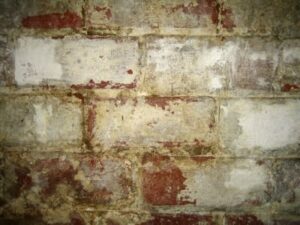WHY IS YOUR BASEMENT LEAKING?
WHY IS YOUR BASEMENT LEAKING?
There are a number of ways that water can make its way into your home and cause water damage. In Baltimore, a leaky basement is a common occurrence for businesses and homeowners, and it’s one of the leading causes of water damage and mold. Although it can be difficult to determine what’s causing your basement to leak without a professional inspection and assessment, understanding the most common causes of basement leaks can help you start thinking about your options and what you’ll need to do to waterproof your basement.

Hydrostatic Pressure
Pressure created by water in the soil is by far the most common cause of basement leaks, and there are two forms of pressure your basement can be subjected to. The first is hydrostatic pressure, which results when the water table rises under a foundation and pushes water up against the foundation and eventually through small cracks in the floor. If this is the case, you will need to have your basement waterproofed with drain tiles and a sump pump to prevent future leaks. It should be noted that sealing the basement floor will not stop hydrostatic pressure.
Lateral Pressure
The soil around your home can become saturated with moisture and expand outwards against the sides of your basement. When the soil expands, it creates sideways pressure against the foundation that can create opportunities for water to push through and leak into your basement. One way to help prevent soil expansion around your foundation is to ensure that your gutters are clean and that the water flows out of the discharge spout well away from your home.
Seepage
For more homes and businesses with basements, there is often a small gap between the top of the foundation wall and the sill plate of the aboveground structure. Poor grading or soil conditions that allow for pooling water can cause water to seep over the top of the foundation wall. That’s why basement waterproofing normally involves sealing joints, cracks, and other entry points with a waterproof membrane.
